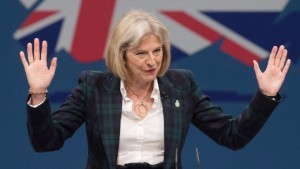“The next General Election should be in 2020.”
The words of Theresa May who has just executed an enormous political reversal.
For months she and her team have played down the prospect of an early poll.
The reasons were simple. They didn’t want to cause instability during Brexit negotiations.
They didn’t want to go through the technical process of getting round the Fixed Term Parliaments Act.
They didn’t want the unpredictability of an election race.
And many in the Conservative Party believed there is so little chance of the Labour Party getting its act together before 2020 that they could carry on until then and still expect a sizeable majority.
There was also, for Theresa May, the desire to show that she will be a prime minister who sticks to her word.
But the relentless political logic proved too tempting to hold to all of that.
Dealing day-to-day with a small majority has given Conservative backbenchers significant power to force the government to back down on a variety of issues.
Election campaigns can be deeply unpredictable but opinion polls suggest a Tory majority that would make that problem disappear.
And while prime ministers are not directly elected, as she approaches the Brexit negotiations, the PM’s hand in negotiations in Brussels – as well as in Westminster – would be fundamentally strengthened with an election mandate she believes she can win.
There are plenty of risks.
If the last few years have shown anything it’s the politics of this era is extremely hard to predict.
With ministers in the dark until this morning, what is certain is that Theresa May is hard to read.
Ask me anything
Explore related questions





